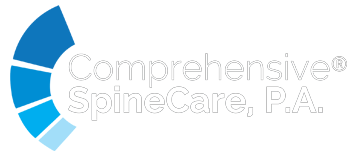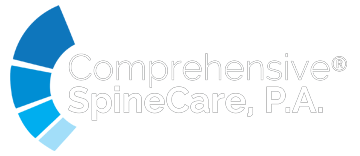What Is Degenerative Disc Disease?
Degenerative Disc Disease (DDD) refers to symptoms of back or neck pain caused by the deterioration of a spinal disc. Discs act as a shock safety device in the spine. DDD can generate anywhere in the spine, but the most painful disc degeneration usually happens in the neck and lower back.
What Risk Factors Are Related To DDD?
Age is only one of the factors that some doctors believe is related to Degenerative Disc Disease. Some doctors believe that these factors are somewhat correlated to DDD:
- Your occupation: If you have a heavy-duty job, you may be putting too much stress on your joints.
- Life habits: If you practice extreme sports, like weight lifting, this may also put extra stress on your joints.
- Family history: Your genetics can contribute to your development of DDD.
- Smoking: Smoking cuts the level of oxygen in your spine and causes your discs to decay.
Most patients with this condition are older but young adults can also develop it if they have an extreme lifestyle or the right genetics. Younger patients with DDD may not feel pain until the later stages of their lives.
What Is The Nervous System?
Our nervous system manages our body functions. The nervous system is divided into multiple parts:
- The central nervous system consists of the brain and spinal cord
- The peripheral nervous system is made up of nerves that branch off from the spinal cord and extend to different parts of the body.
- The somatic nervous system controls all the actions we can consciously influence, such as extending our arms or legs.
- The autonomic nervous system administers the processes in the body that we cannot consciously influence, such as breathing or regular blinking.
How Does A Damaged Spine Disc Cause Nerve Problems?
Because our spine is the foundation of our nervous system, a damaged disc can greatly affect our body’s functionality by causing nerve problems. The nervous system around your degraded disc may be compromised. When your disc begins to wear and tear, it may cause issues with nerve compression and impair neck movement. Nerve compression may cause various unpleasant symptoms, including numbness, chronic pain, neck and arm weakness, and tingling.
When Should You See A Doctor?
When unpleasant compression symptoms begin it is important you speak to your primary doctor. Your healthcare provider will ask about your medical history and run the proper examinations. If your doctor determines you do have DDD then they may refer you to a specialist. At Comprehensive Spine Care in Westwood, NJ, there is a team of orthopedic specialists ready to help with the right treatment for you. Orthopedic surgeons specialize in the musculoskeletal system which includes the bones, joints, tendons, and muscles.
What Treatments Are Available?
Treatments for this condition vary on the area affected and the severity of the damage. Doctors will usually begin by prescribing medication and physical therapy before recommending surgery. The prescribed medicine usually involves pain relievers and anti-inflammatory medication. When patients practice physical therapy, they strengthen and make their spines more flexible. Correcting your posture can also help you with the pain. Some patients may qualify for a spinal adjustment, a treatment that chiropractors use if they have back or neck pain. For patients with severe pain, multiple steroid injections into the spine may be a possible treatment.
If these treatments do not help the pain, then surgery may be the right treatment. There are different surgical procedures that may be done to alleviate the pain. All surgical patients at Comprehensive Spine Care are provided with medications prior to the surgery date with instructions on their postoperative usage. For the best results, patients should follow all medical advice. To make an appointment with our team, call 201-634-1811.










